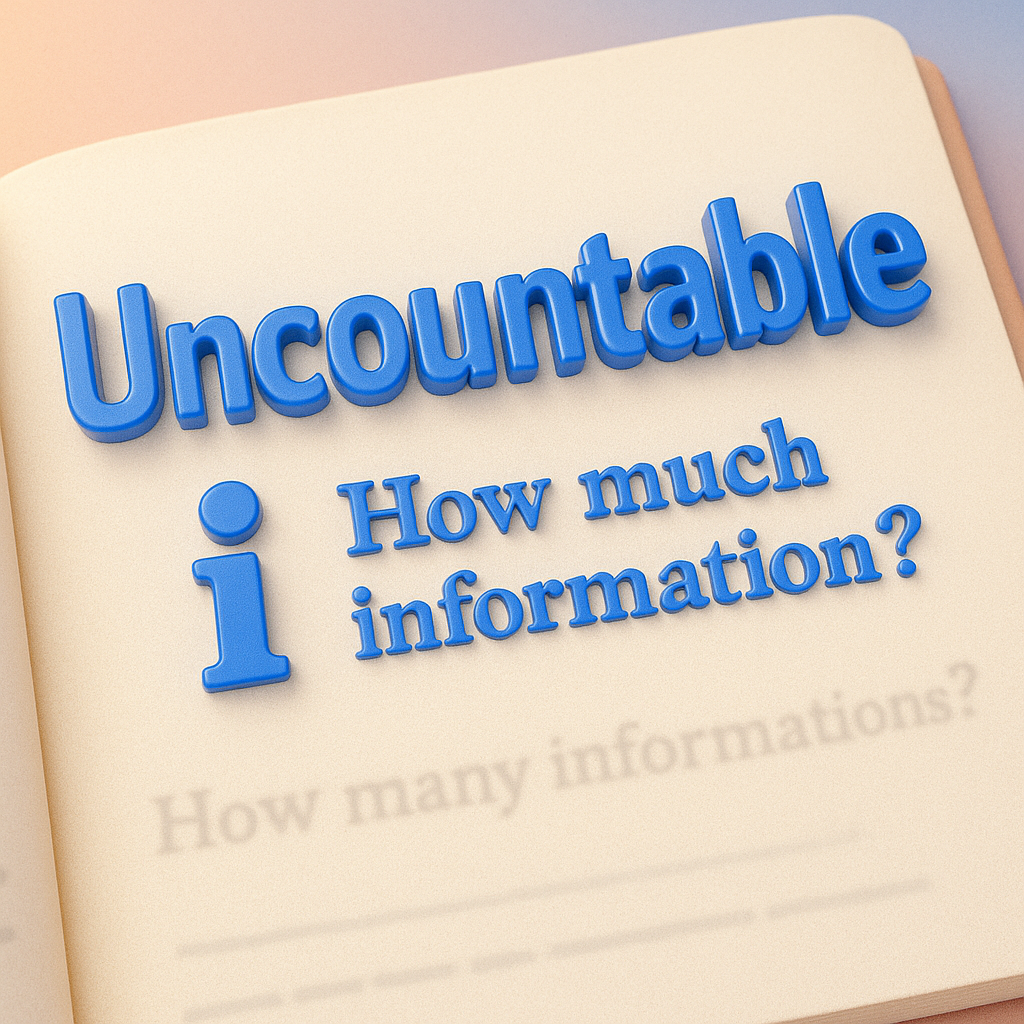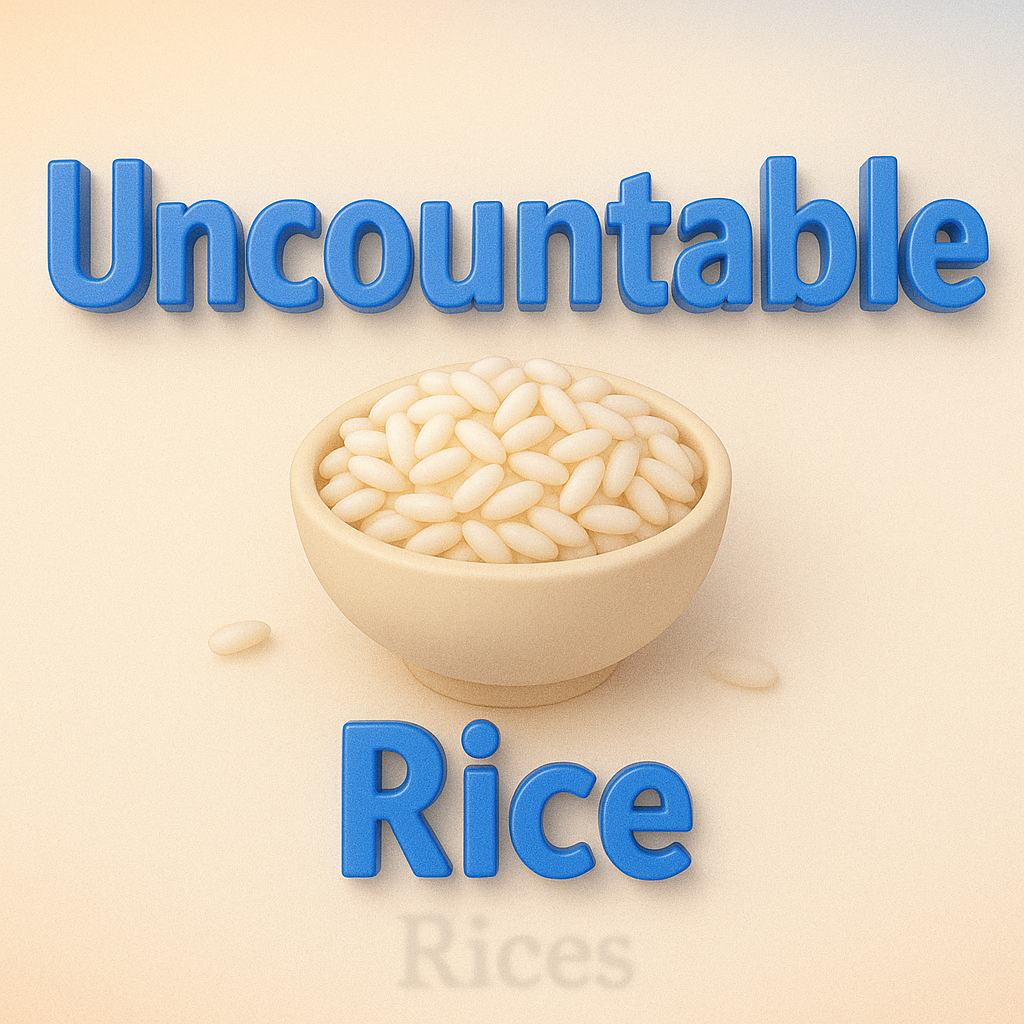Uncountable
Definition
Uncountable describes something that cannot be counted as individual units; in grammar, it refers to nouns that cannot usually be used in the plural form or preceded directly by numerals. It may also denote a quantity or amount that is too large or too numerous to count.
Parts of Speech
- Adjective
- Noun (in grammar: “an uncountable,” meaning an uncountable noun)
Pronunciation
American English
- IPA: /ʌnˈkaʊn.tə.bəl/
- Respelling: un-KOWN-tə-buhl
British English
- IPA: /ʌnˈkaʊn.tə.bəl/
- Respelling: un-KOWN-tə-buhl
Etymology
Late 18th century: from un- “not” + countable, meaning “not able to be counted.”
Derivatives
- uncountably (adverb)
- uncountability (noun)
Synonyms
- innumerable
- countless
- numberless
Antonyms
- countable
- enumerable
Usage
"Water is an uncountable noun—you cannot say ‘waters’ when referring to the substance."
"She faced uncountable challenges during her journey."
Related Terms
- Mass noun: A noun that denotes uncountable substances or concepts.
- Count noun: A noun that can take a plural form and be counted.
- Noncount: Another term for uncountable.
- Quantifier: A word or phrase that expresses quantity (e.g., “much,” “many”).
- Plural: The form of a noun used for more than one.
Detailed Definitions
Adjective
- Not able to be counted – incapable of being enumerated as separate, discrete units.
- Example: "Sand on the beach is uncountable; you cannot say ‘fifteen sands.’"
- Grammar: of nouns that lack a plural form – denoting nouns that cannot appear with numerals without a measure word.
- Example: "Information is uncountable, so we ask ‘How much information?’ not ‘How many informations?’"
Noun
- An uncountable noun – a noun that denotes a substance or concept that is not counted directly.
- Example: "‘Rice’ functions as an uncountable in English grammar."
uncountable








